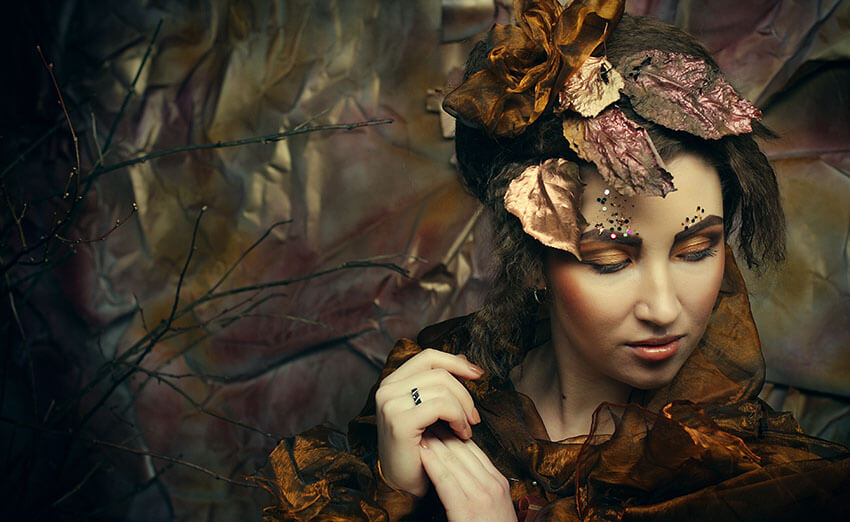Did you have an imaginary friend when you were growing up? Most of us did. Maybe you have forgotten about them, but our imaginary friends were a pretty big deal to us as kids.
They may have been a super hero or heroine. I know there was a time when I thought I was Wonder Woman.
I used to wear those armbands… Boy, when I did… I transformed.
I was confident. I had superpowers. I wasn’t afraid and I believed I could conquer anything and everything.
To be honest, I still use her superpowers to this day. I just have to step into her persona and I can bring forward all of her attributes, exactly when I need them.
I have done this kind of imitation with the likes of Anthony Robbins. Since I am tiny – meaning five foot nothing – I imagine that I am Anthony Robbins when I am facilitating, doing a keynote speech or when I am in front of a large group. I want them to take me seriously, and I want them to feel empowered.
And guess what? I can’t tell you how many times I have had people come up to me and say, ‘you are a female version of Anthony Robbins’.
It got me thinking. We can borrow someone else’s personality for a day or for an occasion, when we need to step into something that is greater or more than what we are. We can create many different personas for different situations.
Just like having different outfits, perfumes or shoes for special occasions, you can do the same with your personality.
Different people bring out different aspects of one’s personality
High performance individuals do something that we call ‘modelling’. It’s not the traditional kind of modelling, the one in which you strut your stuff on a catwalk. Instead, it’s a highly effective technique for personal and professional growth.
For example, if there is a leader they look up to, they invest their time and energy into studying them. They observe, analyse and learn. At times, they even reach out and ask to invest a day with them. They want to see what they have for breakfast, what their morning routines are, whether they do all their emails in the morning and then all their meetings in the afternoon or not.
Once they have all of this information, they try it on for size. They become them. At that point in time, they are wearing a different persona. They have borrowed somebody else’s personality.
Kids do it all the time. Even teens, when they are inspired by an individual or a popstar, they dress, speak and behave like them.
Therefore, as adults, why not create a cupboard filled with different personas depending on the occasion?
People everywhere feel differently at different times in their lives
Firstly, you must be clear on who or what you want to be. Write a list of individuals whom you aspire to be like.
Secondly, study their attributes, behaviours and whatever else inspires you from their personality.
Thirdly, apply the desired personality traits in the situations you require them.
It truly works. I have worked with many leaders who wanted to up the ante. Quite often, I will hear them say, ‘I want to be like XYZ’. My response is simple – ‘what is stopping you?’
This is not to say you are not perfect – because you already are. It is just an exercise to be able to draw on other personalities, qualities and skills. For instance, if you lack a little confidence, imagine stepping into the shoes of someone who is super confident. See what happens to your energy.
It very much resonates with a book that I read many years ago – It’s Not How Good You Are, It’s How Good You Want To Be. Paul Arden, the author, clearly spells out that your vision of where or who you want to be is the greatest asset you have. Without having a goal, it’s difficult to score.
So, how good do you want to be?
- Quite good
- Good
- Very good
- The best in your field
- The best in the world
Talent helps, but it won’t take you as far as ambition. Everybody wants to be good, but not many are prepared to make the sacrifices that it takes to be great.
Call out on your alter ego to get things done
After you have created the foundation, use your alter ego to activate your new personality. An alter ego is a second self, which is believed to be distinct from a person’s normal or original personality. The term itself was coined in the early nineteenth century when dissociative identity disorder was first described by psychologists. A person with an alter ego is said to lead a double life.
We all have an alter ego. We all create and continue to create many aspects of self, depending on the situation, the environment or a person’s secondary or alternative personality. I have many friends in the film industry and I see them transform into their characters all the time.
You are the director, screenwriter and actor – what movie are you going to create?
And what personalities do you need to master for who you want to be?





